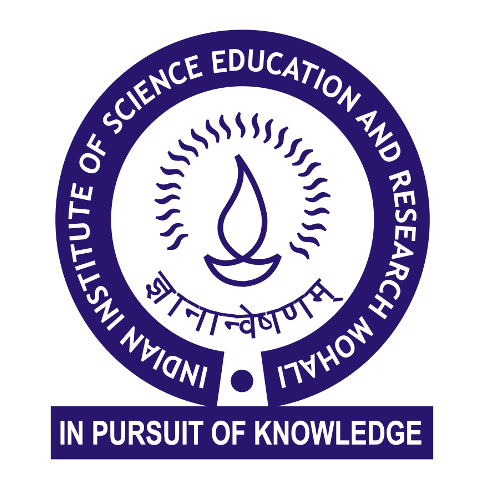Events Calendar
Commensal Yeast Promotes Salmonella Typhimurium Virulence
Thursday 07 November 2024, 04:00pm
Dr. Kanchan Jaswal, Postdoc Research Associate at Behnsen Lab in the Department of Microbiology and Immunology, University of illinois Chicago, United States
Location : IISER Mohali
Abstract: Enteric pathogens engage in complex interactions with the host and the resident microbiota to establish gut colonization. Although mechanistic interactions between enteric pathogens and bacterial commensals have been extensively studied, whether and how commensal fungi affect pathogenesis of enteric infections remains largely unknown. Here we show that colonization with the common human gut commensal fungus Candida albicans worsened infections with the enteric pathogen Salmonella enterica serovar Typhimurium. Presence of C. albicans in the mouse gut increased Salmonella cecum colonization and systemic dissemination. We investigated the underlying mechanism and found that Salmonella binds to C. albicans via Type 1 fimbriae and uses its Type 3 Secretion System (T3SS) to deliver effector proteins into C. albicans. A specific effector, SopB, was sufficient to manipulate C. albicans metabolism, triggering increased arginine biosynthesis in C. albicans and the release of millimolar amounts of arginine into the extracellular environment. The released arginine, in turn, induced T3SS expression in Salmonella, increasing its invasion of epithelial cells. C. albicans deficient in arginine production was unable to increase Salmonella virulence in vitro or in vivo. In addition to modulating pathogen invasion, arginine also directly influenced the host response to infection. Arginine-producing C. albicans dampened the inflammatory response during Salmonella infection, whereas C. albicans deficient in arginine production did not. Arginine supplementation in the absence of increased the systemic spread of Salmonella and decreased the inflammatory response, phenocopying the presence of C. albicans. In summary, we identified C. albicans colonization as a susceptibility factor for disseminated Salmonella infection, and arginine as a central metabolite in the cross-kingdom interaction between fungi, bacteria, and host.
website policy
Connect with us
IISER Mohali, Knowledge city, Sector 81, SAS Nagar, Manauli PO 140306
Telefax : 2240266, 2240124
-
+91 - 172 - 2240266
- +91 - 172 - 2240266


